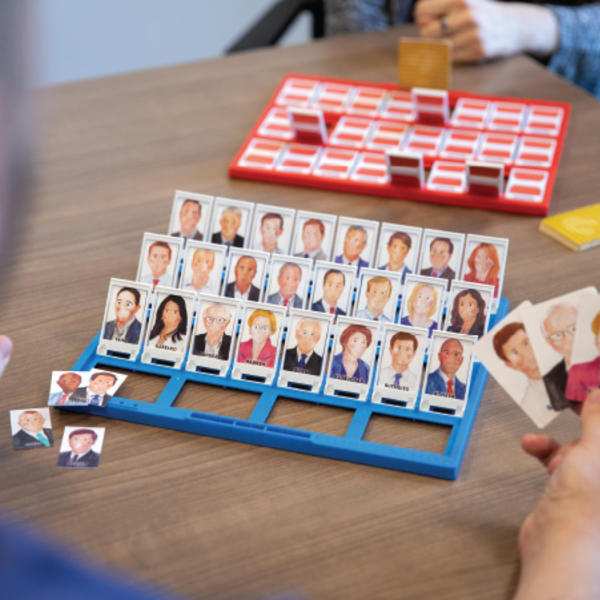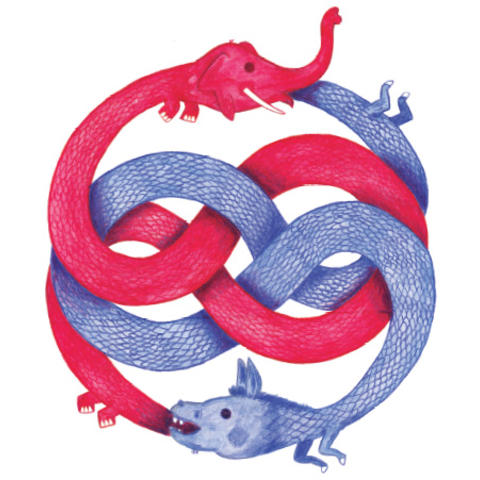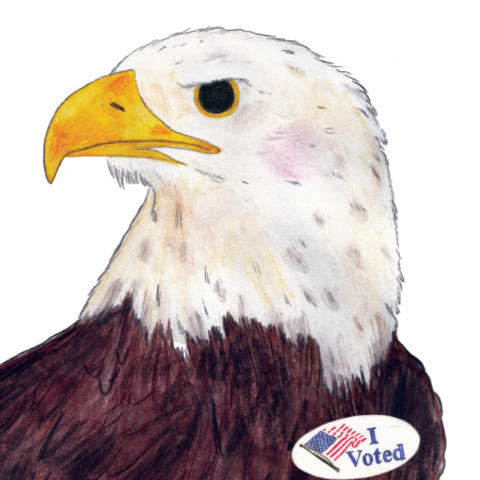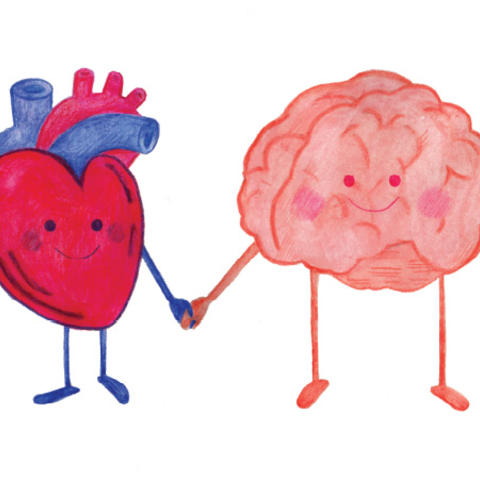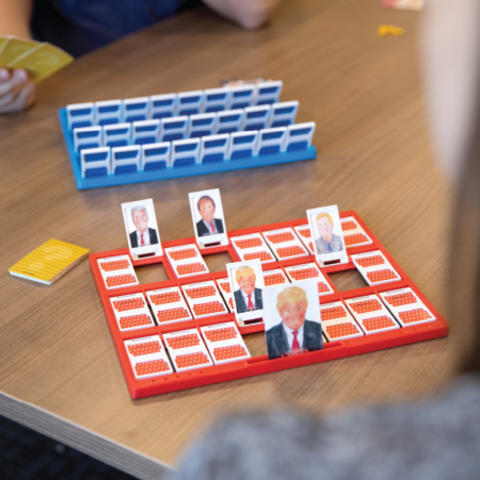Perfect Storm of Outrage
“The stress level for this election is dramatically more intense than the stress level for the 2016 election,” says Tim Bishop ’72, a former six-term Democratic congressman for New York and current distinguished visiting lecturer at the College’s J.D. Power Center for Liberal Arts in the World.
And while anxiety is high, its existence is not new.
“We’ve certainly gone through periods of polarization before,” notes Daniel Klinghard, Holy Cross professor of political science and director of the J.D. Power Center, pointing to the 1960s, the Great Depression, the Civil War and even the split into parties by the Founding Fathers. “This is a unique kind of polarization, however, in that it’s penetrated into the average person’s life in ways that it didn’t for most people during, say, the Jefferson-Hamilton dispute.”
Feeding the division is a never-ending push of real-time information, news, analysis and opinion, only one click away, thanks to mobile technology and social media. “We are all walking around with access to more information in our pockets than people 200 years ago saw in their lifetimes,” Bufka notes.
“We’ve only lived in this fervor for less than a decade and at a minimum, it’s not helping,” Smith says. “You slap all of that on top of a society that is already grappling with a lot of crosscutting social cleavage, from race to the #MeToo movement, and it’s a perfect storm.”
That storm can develop into a vicious cycle, as many start expecting — and even seeking out — the next outrage. That’s what happened to Klinghard a few years ago. “I realized when I was checking Twitter, I was searching for the day’s big controversy and not really thinking about the news,” he says. “It was anxiety driving cultural check-in.” Since then, he’s begun limiting his social media use. “What I’ve been saying to folks — and it’s a very Jesuit thing — is think about what you are feeling and whether you feel energized or drained by the experience. Am I doing it for information or entertainment?”
Oftentimes, the anxiety people experience can be caused by a feeling of uncertainty and lack of control over the negativity in the political world, psychologists say. In order to regain control, those affected might check out of politics entirely or get so involved they go down rabbit holes of polls, blogs and conspiracy theories. That, in turn, sends people into echo chambers that only make them feel more alienated from the other side.
“It’s no secret we are living in a world right now where we are having a harder time as a culture appreciating different points of view other than our own,” Chesire says. While in past times of stress we may naturally rely on friends, family and coworkers for support, “oftentimes our friends and family and coworkers may have different views than our own,” only exacerbating a sense of isolation, he add
“The stress level for this election is dramatically more intense than the stress level for the 2016 election,” says Tim Bishop ’72, a former six-term Democratic congressman for New York and current distinguished visiting lecturer at the College’s J.D. Power Center for Liberal Arts in the World.
And while anxiety is high, its existence is not new.
“We’ve certainly gone through periods of polarization before,” notes Daniel Klinghard, Holy Cross professor of political science and director of the J.D. Power Center, pointing to the 1960s, the Great Depression, the Civil War and even the split into parties by the Founding Fathers. “This is a unique kind of polarization, however, in that it’s penetrated into the average person’s life in ways that it didn’t for most people during, say, the Jefferson-Hamilton dispute.”
Feeding the division is a never-ending push of real-time information, news, analysis and opinion, only one click away, thanks to mobile technology and social media. “We are all walking around with access to more information in our pockets than people 200 years ago saw in their lifetimes,” Bufka notes.
“We’ve only lived in this fervor for less than a decade and at a minimum, it’s not helping,” Smith says. “You slap all of that on top of a society that is already grappling with a lot of crosscutting social cleavage, from race to the #MeToo movement, and it’s a perfect storm.”
That storm can develop into a vicious cycle, as many start expecting — and even seeking out — the next outrage. That’s what happened to Klinghard a few years ago. “I realized when I was checking Twitter, I was searching for the day’s big controversy and not really thinking about the news,” he says. “It was anxiety driving cultural check-in.” Since then, he’s begun limiting his social media use. “What I’ve been saying to folks — and it’s a very Jesuit thing — is think about what you are feeling and whether you feel energized or drained by the experience. Am I doing it for information or entertainment?”
Oftentimes, the anxiety people experience can be caused by a feeling of uncertainty and lack of control over the negativity in the political world, psychologists say. In order to regain control, those affected might check out of politics entirely or get so involved they go down rabbit holes of polls, blogs and conspiracy theories. That, in turn, sends people into echo chambers that only make them feel more alienated from the other side.
“It’s no secret we are living in a world right now where we are having a harder time as a culture appreciating different points of view other than our own,” Chesire says. While in past times of stress we may naturally rely on friends, family and coworkers for support, “oftentimes our friends and family and coworkers may have different views than our own,” only exacerbating a sense of isolation, he adds.
